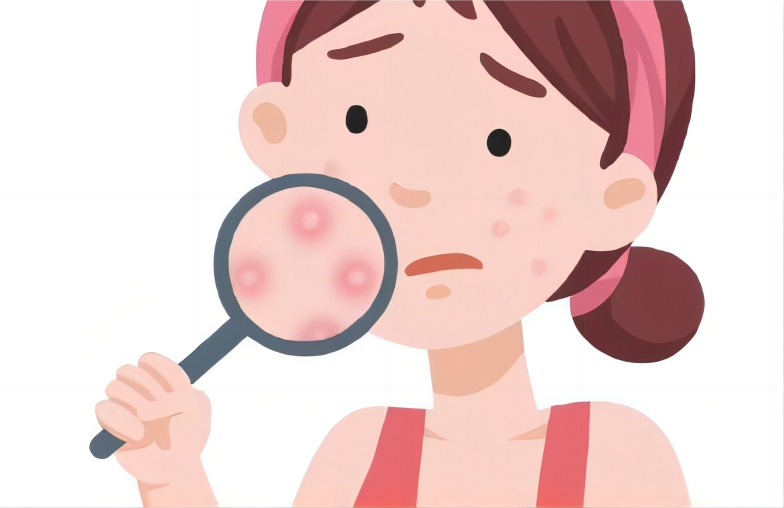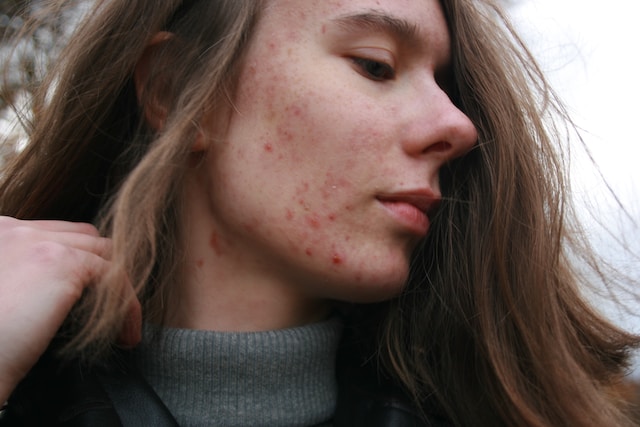Acne is a common skin problem with complex and diverse causes. One of the main causes is the blockage of hair follicles by excessive sebum and dirt, leading to the formation of comedones, followed by overgrowth of anaerobic bacteria and bacterial infection. However, besides this primary cause, there are many other factors that can exacerbate the formation of acne.

Other factors include:
Hormonal Imbalance:
Hormonal imbalances can affect the sebum production and metabolism on the skin surface, leading to an imbalance of oil and water and triggering acne.
Sebaceous Glands:
Overactive sebaceous glands can result in increased oil production on the skin, which can cause inflammatory acne. Additionally, sebum keratinization can lead to the formation of closed comedones, clogging the skin pores and making acne more likely to develop.

Emotional Stress:
Prolonged mental tension and excessive stress can make the sebaceous glands more active, increasing sebum production and the levels of free fatty acids, which can trigger acne.
Demodex Mites:
Demodex mites crawling, excretions, and secretions can stimulate the skin and cause inflammation and rashes.

Cosmetics:
Improper use of certain cosmetics can irritate the skin and clog the pores, making acne more likely to develop.
Living Environment:
Poor hygiene, severe environmental pollution (dust and dirt that can irritate the skin), frequent mask-wearing, and prolonged exposure to hot/humid environments can contribute to the formation of acne.

Diet:
A diet high in heat-inducing, high-sugar, oily, salty, and high-glycemic foods can increase sebum production. Additionally, it is recommended to consume fewer dairy products during periods of acne.
Medications:
Iodides and bromides can induce folliculitis, leading to acne formation.

Although acne has various causes, understanding these factors can help us take appropriate measures to prevent and control acne. Maintaining good personal hygiene habits, regulating diet, reducing emotional stress, choosing suitable cosmetics and skincare products, and creating a clean and healthy living environment are all important steps in improving skin conditions. Additionally, if acne problems are severe or cannot be controlled, it is advisable to consult a professional dermatologist for a more detailed diagnosis and treatment advice.


